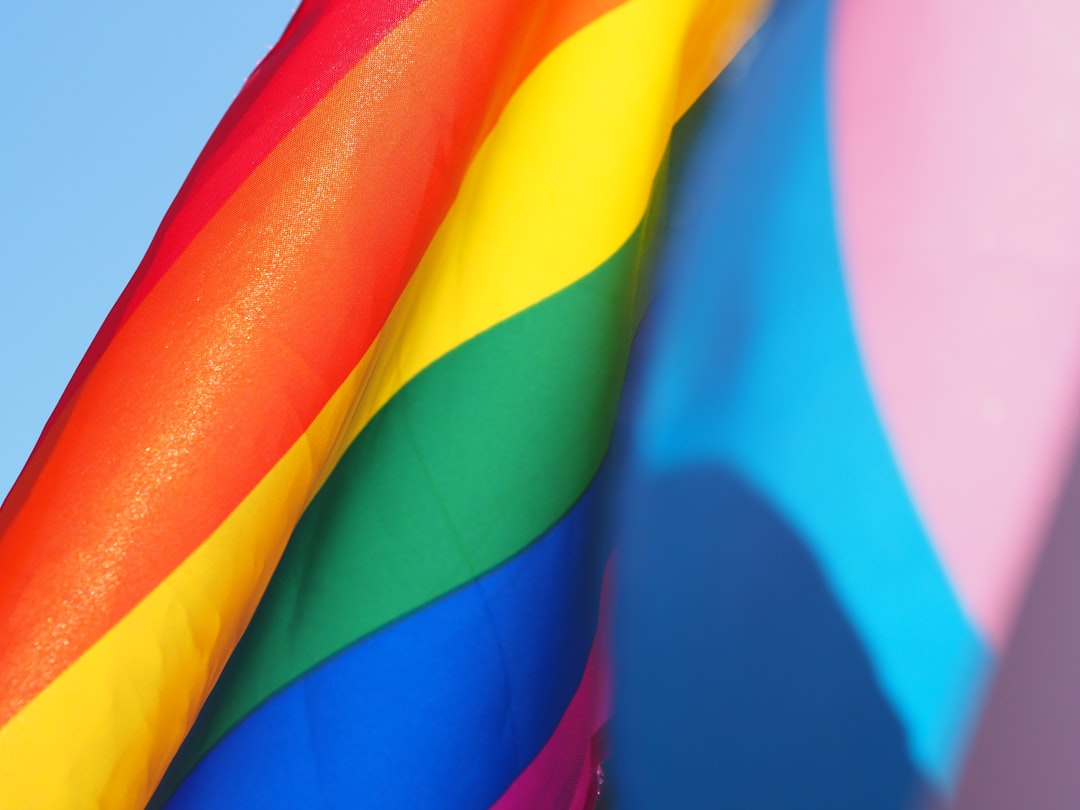My team and I were recently on call with a public sector partner, where we’re constructing a dashboard to display disease dynamics. Among other things, one thing the dashboard did was it allowed you to filter disease incidence by sex. During the call, one of the members of our partner’s team said that she wanted us to change sex to gender in the filter.
 Photo by Cecilie Johnsen on Unsplash
Photo by Cecilie Johnsen on Unsplash
Now, the person who is the primary engineer on the team (and a very dear friend of mine) promptly slack’ed the rest of the team, saying he was expecting this. He explained that he felt that it would be insensitive to call it gender as this would mean that we were treating gender as a binary. He asked if we could discuss using an alternative term instead, like biological sex. Given that we were dealing with a government partner, I responded saying that the Indian Government (in theory) should treat both of them as non-binary terms. So I concluded that it would not be insensitive to change the term to gender, and that he could go ahead with it.
Firstly, I want to start by saying that this friend of mine is an absolute sweetheart, and I love and adore him. I know exactly what he’s trying to say, and I know that he is well meaning. I also know that there are folks within the queer community who view things this way. It’s just that - I disagree.
Secondly, this entire discussion is a question of semantics. The political fight for trans and intersex liberation should not depend on the outcome of this discussion. How you treat people should not be dependent on their biology, their feelings, their choices, or anything in between. However, one must recognise that semantic framing is important, and that’s what this piece is about.
Do note, this is not going to be a philosophical discussion. I do not have the smarts or expertise to do that. It’s going to be more of a semantic and biological one.
We hear terms like ‘social construct’ thrown around a lot. This piece is not going to delve into what that means, not too much anyway. Here’s an incredible primer from Philosophy Tube. In case you didn’t watch that yet, I’ll give you a brief of how I understand them.
Social Constructs are definitions attached to any entity or action (be they a group of people or animals, or a set of objects, natural or artificial, or an action/set of actions that the entities participate in). The thing is, definitions can have exceptions, and often do.
A great example of a social construct would be a planet. Pluto was initially considered a planet by the IAU, and now it isn’t. It doesn’t make Pluto any less real than it was in 2006. It’s simply that the classification was revised. In Pluto’s case, the IAU stated that it was because Pluto hadn’t “cleared the neighbourhood around its orbit”. Essentially, a group of humans with expertise on astronomy got together and said “We’re not counting Pluto as a planet anymore.” This became the international standard, and by no means is it a consensus.
 Photo by NASA on Unsplash
Photo by NASA on Unsplash
You, as a reader and inquisitive scientist, are free to consider Pluto a planet. The IAU is a social construct themselves, and you need not recognise their legitimacy. You could even, for instance, recognise their legitimacy, and yet not agree with, and therefore accept, this one conclusion that they reached. The world’s your canvas, you can do as you please.
The first point I am making here is: Social constructs are definitions, they’re filters through which we view the world. They are bounds and boxes for us to create objective definitions from subjective reality. But they are not rigid, and can’t be.
On September 23, 1999, NASA’s Mars Climate Orbiter was supposed to enter orbital insertion. However, it was lost forever, costing the United States Government an estimated 327 million USD. This happened as a result of a computer error. The source of the computer error? NASA used the metric system (like the rest of the scientific community), while aerospace and defense contractor Lockheed Martin used US Customary Units. As a result, when their systems interfaced, calculations for acceleration were presented in the wrong units (pound-forces instead of Newtons), and the number was off by a factor of 4.5. The full report on the mishap is an interesting read.
Both inches and centimetres are socially constructed. As are Newtons and pound-forces. Length is a real entity, but how we perceive and measure length is a social construct. And it’s important for us to understand which construct we are using to view the world. Most of the world and the scientific community might say that pound-forces is an obsolete form of measurement, but NASA must know of its existence, and must build its systems to be cognisant of such units, until such a time that the units are no longer in use.
 Photo by NASA on Unsplash
Photo by NASA on Unsplash
This leads to my second point: Social constructs have real world impacts. How we define entities and actions matter. We are not interacting with the world around us by ourselves. How we talk to each other about the world impacts outcomes. And it can even be a matter of life and death. Therefore, stands to reason that one would have to be ignorant or disingenuous to equate calling something a social construct with denying its existence. Social constructs are very much real, as real as the glasses you use to help you see when you develop myopia.
I’ve used astronomy, physics, and mathematics examples to talk about social constructs because it is easier to explain, and its also less controversial to talk about planets, inches and centimetres, Newtons and pound-forces. It changes considerably when we talk about sex and gender.
I’m not going to go through the motions and give you their definitions. You can find them here (sex and gender from the Merriam-Webster Dictionary.)
When most people refer to sex, they’re referring to “biological sex”, and the implication usually being that gender is about your identity and expression, while sex is your innate biology. But what is innate biology?
As far as biology goes, there’s 3 main lines (or axes) usually used to define sex:
- Karyotype, the sex chromosomes in all human somatic cells.
- Primary sexual characteristics
- Chemical physiology - primarily hormone levels
- Physical physiology - internal genitalia, external genitalia, and gonads.
- Secondary Sexual Characteristics, which essentially lumps in everything not covered in the two above
First off, karyotypes are decidedly not dimorphic. Some estimates place the number of intersex people as high as 1.7%. However, the medical community’s adamance to treat sex as essentially dimorphic has made research slow. The generally accepted definition of intersex people refers to people born with characteristics that don’t fall within the binary of male and female. It’s a negative definition rather than a positive one.
Secondly, there’s the case of PCOS. I will direct you to the following pieces linked here, here, and here, which talk about it a lot better than I could. But, very basically, PCOS presents hormonal variations (abnormally high amounts of androgens, i.e. ‘male’ hormones, in ‘women’) which could potentially be explained as intersex characteristics. PCOS is incredibly common. Some estimates place it as occurring in one out of ten women (the estimates usually use the term woman - which is an incomplete and inaccurate statement - a slightly more inclusive and accurate statement would probably phrase it as one in ten people with a risk of PCOS - that includes cis-women, trans masculine individuals, and non binary individuals.), and it is more than likely that you personally know multiple people with PCOS. I know I do. Now, to be very clear, this doesn’t necessarily mean that all individuals with PCOS are intersex. It does however indicate that the sexual binary is less clearly divided than we’ve been made to think.
Thirdly, using hormone therapy, a trans-feminine or trans-masculine individual (who themselves might or might not be intersex) can choose to change their body’s hormone composition, subsequently changing their biochemistry and many of their secondary sexual characteristics as well. Some additional characteristics can be changed through surgery and other procedures. There are trans individuals whose hormone levels and body biochemistry changes significantly so much so their reaction to drugs is similar to that of cis individuals (i.e. some trans-feminine people have estradiol levels and general biochemistry that is far more similar to the average cis woman, and similarly with trans-masculine people and cis men).
I’ve talked about biology just a little bit to add some context, but we would ultimately have to pivot back to definitions. But before we do that, we have to understand why definitions are important.
In the video I linked above, Abigail talks about “homeostatic property clusters,” which are essentially groupings which are done to help predict properties and behaviour. She talks about how the duck billed platypus is considered a mammal even though it lays eggs, because since they have so many properties in common with mammals, that was the only categorisation that made sense. There, it is the scientific community. Earlier, I used the example of Pluto, where the IAU took a call on Pluto’s status.
 Photo by Birmingham Museums Trust on Unsplash
Photo by Birmingham Museums Trust on Unsplash
What happens when we’re not talking about the taxonomy of platypi (sic, probably)? What happens when we’re talking about the sex of humans? This discussion then leaves the biology, semantics, or philosophy space, and becomes a political project as well. Most people arguing in those spaces don’t really care about semantics or biology, what they care about is restricting and regulating how other people behave, and justifying their reactionary viewpoints.
But, yet, can we answer the question? How many properties of female sex or male sex can you take away before the definition is no longer relevant?
What properties are absolutely essential? Maybe you say karyotype. What about intersex people with XX male syndrome? Maybe you’d say “Okay, my definition categorises people basis presence of the sry gene”. Are you going to test every baby for the sry gene before declaring sex on their birth certificate? Even if you do, what about the people who are exceptions to that rule as well, what about people where the gene doesn’t express?
There is an important (and interesting) discussion that can be had here. Biological sex, in clinical and research terms, needs an updated definition to stay relevant with our increased understanding of biology, and the increased visibility of trans and intersex people. It needs to be defined along many axes, and complex nuance must be accounted for.
There is a growing body of research that talks about how medical research has been incredibly biased and is therefore not tailored to anyone except white men (usually referring to cis-men). If we were to truly make medical research truly applicable for all humans, we would have to start acknowledging the nuances of biological sex.
Everyone talks about gender being a social construct, which, yes, it very much is. But, in my opinion, we will never deal with the implications of gender until we also stop treating sex as a biological reality and have an honest discussion about its limitations. It’s one thing to have exceptions in the case of animals or planets. It’s a different thing when you are placing societal rules and following societal norms based on your classification of fellow human beings. It’s important to remember, there will be no right answers to most of these questions. But there probably are right ways to go about it, and the first might be to listen to the people from these communities.